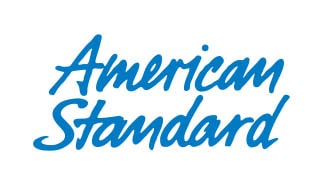Published on
October 26th, 2023Why Don’t New York Apartments Have Garbage Disposals? Common Waste Removal Issues for Condos and Co-Ops
As a property owner in New York City, you may receive numerous requests for garbage disposals. The devices are legal in NYC but uncommon, especially in prewar buildings and other older, high-rise structures.
Why don’t New York apartments have garbage disposals? The answer is straightforward: The city banned them until 1997. As to why the devices still don’t exist in many buildings, the objections are similar to why the ban occurred in the first place: a lack of sufficient infrastructure.
Why Don’t New York Apartments Have Garbage Disposals?
1970s Law
The garbage disposal, invented by John W. Hammes in 1927, was relatively uncommon until after World War II. The popularity of kitchen modernization and remodeling drove the nationwide installation trend.
In NYC, officials became nervous over the aging sewer system and the introduction of raw organic refuse. Officials also worried about the increase of waste in nearby rivers and waterways. To curb concerns, the city adopted a ban in the 1970s to protect vital infrastructure and ecosystems.
Most New Yorkers did not mind the ban because disposals were initially cost-prohibitive and noisy. However, as the devices became more common and concerns over ecosystem and infrastructure threats dissipated, NYC reconsidered its ban. The consideration came after a lengthy trial period with hundreds of participants.
1997 Reversal
The road to a ban reversal took work. Norman Steisel, First Deputy Mayor of NYC, played a crucial role in legislation over garbage disposers. Beyond holding a seat in Mayor David Dinkins’ administration (1990-1993), Steisel also served as Sanitation Commissioner for several years.
Steisel knew the city depended on landfills and was still implementing a feasible recycling program. He also understood apartments have garbage disposals across the country without significant issues. Steisel suggested a joint project between the Department of Sanitation and the Department of Environmental Protection to uncover the device’s potential financial and ecological benefits.
The DSNY and DEP study ran for 21 months and included 200 devices installed across the city — results compared apartments with the disposers against those without in the same building. The final report, authored by the DEP, suggested the city could save an estimated $4 million in solid waste export costs by permitting disposer installations with minimal effects on existing infrastructure and ecosystems.
The findings shaped legislation. In 1997, under the Rudy Giuliani administration, the city lifted the ban on garbage disposals. Still, despite the change in legislation, few New York apartments have garbage disposals.
Prewar Infrastructure
Many buildings in New York City predate World War II. When real estate agents talk about prewar buildings, they mainly refer to properties erected between 1900 and 1939; however, some prewar buildings date back to the 1880s.
Infrastructure in older structures is less durable than modern sewers and plumbing. Installing garbage disposals could present challenges to the existing systems, possibly with catastrophic results.
Pervasive Myths
Beyond the potential risk to sewer lines, many pervasive myths persist in NYC. Some believe garbage disposals may contribute so much excess waste into the sewers that it causes sewage spillover. The disaster may pollute waterways or land areas. Also, many landlords still believe a ban is in effect because few apartments have the device.
In response to disposals producing excessive waste resulting in potential spillover, residents and property owners must recognize the capabilities of the NYC sewer system. The existing system can handle 1.2 billion gallons of refuse daily. If all NYC properties suddenly installed disposers, the devices would only contribute 3 million gallons of additional waste — less than 1% of the system’s capabilities.
Costs and Maintenance Concerns
Many New York apartments don’t have garbage disposals because of installation costs and maintenance concerns. Initial installation costs are around $600 per apartment, which is difficult for property owners to justify, especially when many see the appliance as unnecessary. After all, if people scrape their plates before washing them, there is no need for a device that pulverizes food waste, right? It is a preventative tool.
Aside from the installation costs, landlords worry about maintenance issues. Putting things into the system it cannot handle can damage the device or cause blockages and problems in the waste lines of the building. While disposals can’t handle everything, such as non-biodegradable items, egg shells, various vegetable and fruit peels, and other items, they can handle most food waste.
Like other pervasive myths, people often overstate maintenance issues. A modern disposer can last upwards of 10 years without issue. The pulverization mechanisms of current models reduce the risks of clogs. Still, building owners are the gatekeepers to installation, and tenants must seek permission.
Where Can You Install Garbage Disposals in New York?
Brownstones, Townhouses, and Anywhere With Permission
Most New York rentals with garbage disposals are recently renovated brownstones or townhouses with newer plumbing systems. Still, renovations don’t also mean disposer upgrades are wise investments.
Depending on the property’s age and the surrounding infrastructure, a full-gut remodel does not always mean installation is appropriate. While the interior plumbing may be new, the existing city infrastructure might be 100 years old or older.
To ensure your building can handle the upgrade to in-unit garbage disposals, talk to an architect or licensed plumber. Sanitary Plumbing can assess your existing system to try and abate any reservations.
What If Tenants Install an Illegal or Unpermitted Garbage Disposal?
Undercover Installations and Liabilities
As a property owner, you know tenants often try to get away with things their leases don’t permit, such as pets or sneaky installations. Some tenants may install garbage disposals without seeking permission or after the property owner denies it.
If the property is not retrofitted for disposers, the devices may cause problems, including backups and pipe breaks. You are not liable for the damage caused by an unpermitted installation; the tenant who installed the device is.
Why Don’t New York Apartments Have Garbage Disposals?
Aging Infrastructure Is the Primary Culprit
Why don’t New York apartments have garbage disposals? The main reason is the aging infrastructure, but that is not all. Pervasive myths, prohibitive costs, and disinterest also contribute to the lack of disposers. Contact Sanitary Plumbing at 212-734-5000 to discuss installation or learn more about garbage disposals, which are legal and valuable devices.








